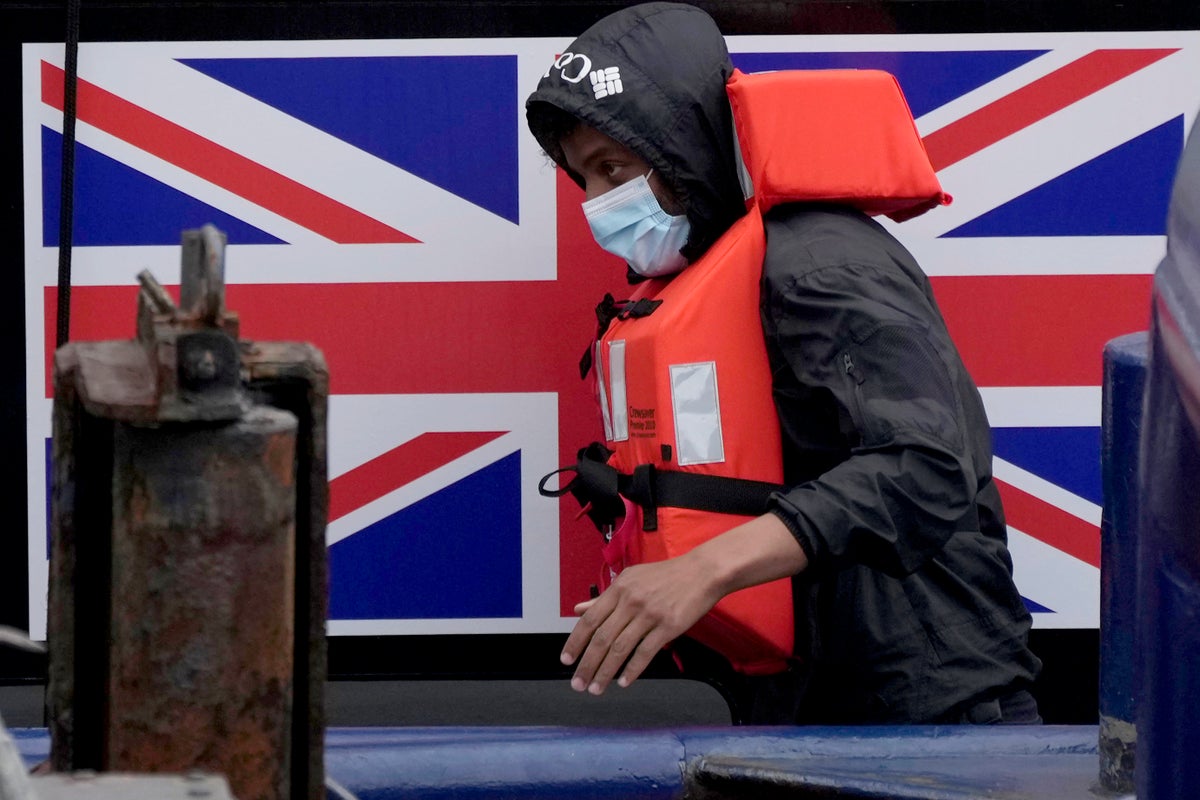
The U.K. government watered down some parts of its controversial immigration legislation on Tuesday in a bid to get the bill through Parliament.
The Illegal Migration Bill, once passed, would require officials to detain and deport people who cross the English Channel to Britain in small boats
The Conservative government has pledged to “stop the boats” — a reference to the overcrowded dinghies and other small craft that cross from northern France carrying migrants who hope to live in the U.K. More than 45,000 people arrived in Britain by crossing the Channel in this way in 2022; several died in the attempt.
The bill has been approved by the House of Commons, where the governing Conservatives have a majority, but faced strong opposition in the unelected House of Lords, which has the power to amend but not block legislation.
The Lords sent the bill back to the House of Commons with 20 amendments removing some of its most severe measures.
The government made some concessions to opponents, taking out a clause that would have made deportation apply to people who arrived even before the bill became law. The government also reduced the time unaccompanied minors can be held in immigration detention from 28 to eight days.
But ministers want the Commons to undo most of the Lords' changes before returning the bill to the upper house in a process known as “parliamentary ping-pong.”
Immigration Minister Robert Jenrick said the Lords should “think again” and respect the will of elected lawmakers.
“It’s vital that this bill reaches the statute book quickly, and in a form that will stop the boats,” he said.
The legislation bars asylum claims by anyone who reaches the U.K. by unauthorized means, compelling officials to detain and then deport refugees and migrants “to their home country or a safe third country,” such as Rwanda. Once deported, they would be banned from ever re-entering the U.K.
Britain’s government says the law will deter people from making perilous journeys across the Channel and break the business model of the criminal gangs behind the trips.
Critics say it would leave most refugees and victims of modern slavery with no way of seeking asylum in Britain and breaches the U.K.’s international human rights obligations.
Even if it is passed into law, the deportation plan faces serious obstacles. The U.K. and Rwanda signed a deal last year for asylum-seekers to be sent permanently from Britain to the East African country, but last month the Court of Appeal ruled it was illegal. The government is seeking to appeal to the U.K. Supreme Court.
The immigration spokesman for the opposition Labour Party, Stephen Kinnock, said the bill was “a tawdry and deeply counterproductive attempt to show the government is doing something, anything” about a system that is overburdened by a backlog of thousands of asylum-seekers waiting months or years to have their cases heard.
“This bill will only make a terrible situation worse,” he said.







